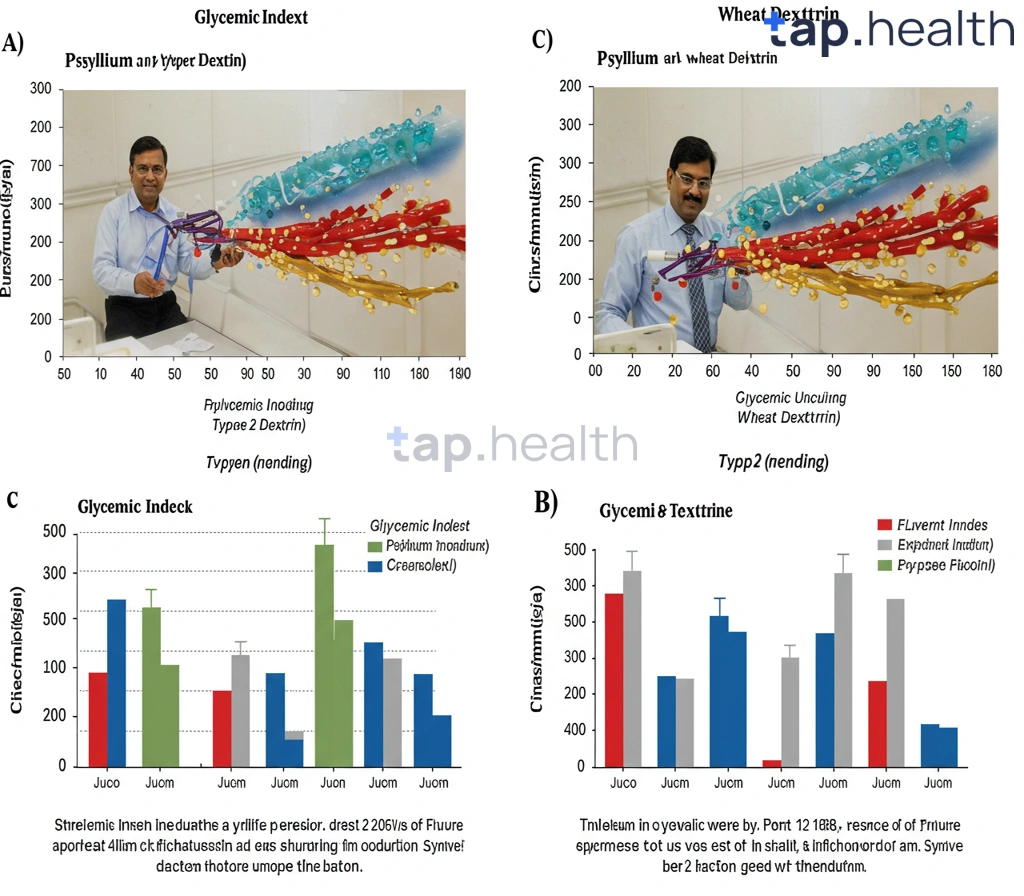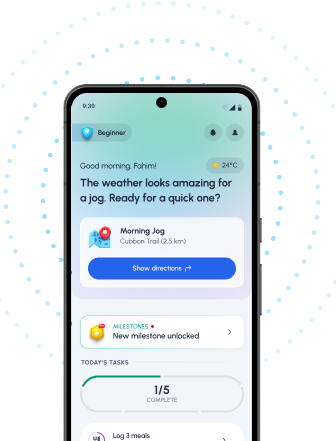Table of Contents
- How Better Sleep Lowers Blood Pressure and Improves Diabetes
- The Link Between Sleep, Blood Pressure, and Diabetes Management
- Improve Your Sleep Hygiene for Better Blood Pressure and Diabetes Control
- Guide to Better Sleep: A Key to Managing Blood Pressure and Diabetes
- Is Poor Sleep Affecting Your Blood Pressure and Diabetes? Discover How to Improve Rest
- Frequently Asked Questions
- References
Are you struggling with both high blood pressure and diabetes? Finding it tough to manage both conditions? Then you’ve come to the right place! This blog post focuses on Improving Sleep: Lowering Blood Pressure for Better Diabetes Management, exploring the powerful connection between restful sleep and better health outcomes for those living with these intertwined conditions. We’ll delve into practical strategies you can implement tonight to improve your sleep quality and, in turn, potentially lower your blood pressure and better manage your diabetes. Let’s get started on your path to a healthier, more restful you!
How Better Sleep Lowers Blood Pressure and Improves Diabetes
High blood pressure and diabetes are serious health concerns, particularly prevalent in India and other tropical countries. Did you know that improving your sleep can significantly impact both? Research shows a strong link between diabetes and sleep disorders; individuals with diabetes have a 70% increased risk of sleep apnea. This disruption in sleep quality directly affects blood pressure, creating a vicious cycle that worsens diabetes management. For a deeper dive into this connection, read more in our article on The Connection Between Diabetes and Sleep Apnea.
Understanding the Connection
Poor sleep leads to elevated cortisol levels, a stress hormone that raises blood pressure. Insufficient rest also impacts insulin sensitivity, making it harder for your body to regulate blood sugar levels. This is especially relevant in hot and humid climates common in many Indian and tropical regions, where sleep disturbances are more frequent due to factors like discomfort and increased mosquito activity. Managing sleep effectively is crucial for overall health and wellbeing in these regions.
Practical Steps for Better Sleep
Improving your sleep hygiene can dramatically improve your health. Start by establishing a consistent sleep schedule, aiming for 7-8 hours of quality sleep. Create a relaxing bedtime routine – this could include a warm bath, light reading, or meditation. Ensure your bedroom is dark, quiet, and cool. Consider dietary changes; avoiding large meals and caffeine before bed can greatly assist. Regular exercise, while not immediately before sleep, is also beneficial for improving sleep quality.
Prioritize Your Health
In India and tropical countries, access to quality healthcare may vary. Taking proactive steps to improve your sleep, thereby lowering your blood pressure and better managing your diabetes, empowers you to take control of your health. Consult your doctor or a qualified healthcare professional for personalized advice and to address any underlying sleep disorders. Prioritizing sleep is a simple yet powerful step towards a healthier and happier life. Learn more about the crucial role of sleep in managing diabetes in our article, The Importance of Quality Sleep in Managing Diabetes.
The Link Between Sleep, Blood Pressure, and Diabetes Management
Insufficient sleep significantly impacts blood pressure, a critical factor in managing diabetes, especially in regions like India and other tropical countries. Studies show a strong correlation between poor sleep quality and hypertension, increasing the risk of cardiovascular complications. This is particularly concerning given that smokers with diabetes in these regions face a doubled mortality rate from cardiovascular issues. Improving sleep hygiene is therefore crucial for better diabetes management and overall health.
Understanding the Connection
High blood pressure (hypertension) is a common complication of diabetes, and inadequate sleep exacerbates this risk. When you don’t get enough restful sleep, your body releases more stress hormones, leading to increased blood pressure. This hormonal imbalance further complicates blood sugar regulation, making it harder to control diabetes. In hot and humid climates prevalent in many Indian and tropical countries, sleep disturbances can be even more pronounced due to discomfort and environmental factors.
Practical Steps for Better Sleep
Implementing simple changes can significantly improve sleep quality. Prioritize a regular sleep schedule, creating a relaxing bedtime routine. Avoid caffeine and large meals close to bedtime. Regular physical activity, even a short walk, can improve sleep. Creating a cool and dark sleeping environment is especially important in warmer climates. Consider practicing relaxation techniques like yoga or meditation before bed. Addressing sleep issues is a proactive step towards better blood pressure control and overall diabetes management. For more information on how diabetes can affect sleep, you might find Does Sugar Diabetes Make You Sleepy? – Tap Health helpful.
Taking Control of Your Health
Prioritizing sleep is a vital component of effective diabetes management, particularly in high-risk populations. By addressing sleep quality, you actively mitigate the risk of hypertension and its associated cardiovascular complications. Taking these steps can contribute to a healthier, longer life. Consult your doctor to discuss personalized strategies for improving your sleep and managing your diabetes effectively. Understanding the relationship between diabetes and obesity can also provide a more holistic view of your health.
Improve Your Sleep Hygiene for Better Blood Pressure and Diabetes Control
A staggering over 60% of people with diabetes in India also suffer from hypertension, highlighting a critical link between these conditions. Improving sleep hygiene is a crucial, often overlooked, step towards managing both. Poor sleep significantly impacts blood pressure regulation, increasing the risk of cardiovascular complications, already heightened in individuals with diabetes. This underscores the importance of prioritizing sleep in managing these interconnected health challenges common across India and other tropical countries.
Addressing Sleep Disorders for Better Health Outcomes
Many factors contribute to poor sleep in tropical climates, including heat, humidity, and varying daylight hours. Addressing these issues is key. Simple adjustments, such as ensuring a cool, dark, and quiet sleeping environment, can make a significant difference. Consider lightweight, breathable bedding and potentially using a fan or air conditioner, especially during warmer months. Regular exercise, but avoiding intense workouts close to bedtime, can also promote better sleep quality.
Practical Steps to Improve Your Sleep
Establishing a consistent sleep schedule, even on weekends, is vital for regulating your body’s natural sleep-wake cycle. Avoid caffeine and alcohol before bed, and aim for a relaxing bedtime routine that may include warm showers or meditation. Prioritizing sleep is not a luxury, but a fundamental part of effective diabetes and hypertension management. In India, and across tropical regions, cultural practices that promote relaxation and stress reduction can be integrated into a sleep-improvement plan. For more tips on achieving better rest without medication, check out our guide on Sleep Hygiene Tips for Better Rest Without Medication.
Take Control of Your Health
By focusing on improving sleep hygiene, you can take a proactive step towards better managing both your blood pressure and diabetes. Consult your physician or a qualified healthcare professional to discuss personalized strategies for improving your sleep quality and overall health. Remember, a healthy sleep pattern is an essential component of a healthier and longer life. Learning to build healthy habits can significantly impact your blood sugar levels; see our article on How to Build Habits That Help Control Blood Sugar Levels for more information.
Guide to Better Sleep: A Key to Managing Blood Pressure and Diabetes
Poor sleep significantly impacts blood pressure and diabetes management, particularly crucial for the large population of individuals aged 20-64 with diabetes, representing 61% according to the International Diabetes Federation. In hotter climates prevalent across India and tropical countries, achieving restful sleep can be even more challenging due to factors like humidity and temperature. This makes addressing sleep quality a vital component of overall health and disease management in these regions.
Improving Sleep Hygiene for Better Blood Sugar Control
Consistent sleep schedules are essential. Try to go to bed and wake up around the same time each day, even on weekends, to regulate your body’s natural sleep-wake cycle. In warmer climates, consider cooling down your bedroom with fans or air conditioning. A comfortable sleep environment is crucial. Regular physical activity, but not too close to bedtime, can improve sleep quality. However, remember to adjust exercise timing to avoid overheating in the afternoon or evening.
Dietary Changes and Blood Pressure Management
Maintaining a healthy diet plays a significant role in both sleep and blood pressure regulation. Avoid heavy meals close to bedtime, opting for lighter snacks if needed. Hydration is also key; drink plenty of fluids throughout the day but limit intake close to bedtime to minimize nighttime bathroom trips. Focus on consuming foods rich in magnesium and potassium, known to support healthy blood pressure and sleep. These dietary adjustments are particularly important considering the high prevalence of diabetes among those aged 65+ (39%), a demographic potentially more vulnerable to sleep disturbances. For more on managing diabetes as you age, check out our guide: Managing Diabetes as You Age: Challenges and Solutions.
Seeking Professional Guidance
If you continue to experience sleep problems despite these changes, consulting a healthcare professional is crucial. They can help identify underlying issues and develop a personalized plan to address your specific needs. Remember, prioritizing sleep is an investment in your overall well-being, especially in managing diabetes and blood pressure, particularly pertinent in the Indian and tropical contexts where environmental factors add to the challenge. For simple yet effective strategies, you might find our guide, 10 Proven Tips to Effectively Manage Diabetes | Simple Guide, helpful.
Is Poor Sleep Affecting Your Blood Pressure and Diabetes? Discover How to Improve Rest
Poor sleep is a significant concern, especially in hot and humid climates prevalent across India and other tropical countries. It’s not just about feeling tired; insufficient sleep directly impacts blood pressure and exacerbates diabetes management. Studies show a strong correlation between sleep deprivation and hypertension, a major complication of diabetes. This is particularly relevant as diabetes contributes to a significant 9-12% loss in work productivity in affected populations due to complications and absenteeism. Improving sleep quality is crucial for overall health and economic well-being.
Strategies for Better Sleep in Hot & Humid Environments
Many individuals in India and tropical regions face challenges getting quality sleep due to heat and humidity. Simple lifestyle changes can make a difference. Prioritize a cool, dark bedroom; consider using a fan or air conditioner if possible. A light, refreshing dinner, avoiding caffeine and alcohol before bed, and establishing a regular sleep schedule are also essential. Practicing relaxation techniques like yoga or meditation before sleep can significantly improve rest quality. Remember, even small improvements in sleep can positively impact your blood pressure and diabetes management. For more information on how blood sugar fluctuations can affect sleep, check out our blog on Why Do Diabetics Get Sleepy After Eating?
Taking Control of Your Health
Regular check-ups with your doctor are vital for monitoring blood pressure and diabetes. Openly discuss your sleep patterns with your physician; they can offer personalized advice and support. Making these changes can lead to improved health outcomes, increased energy levels, and greater productivity, impacting not only personal well-being but also contributing to a healthier, more productive society. Prioritize your sleep – it’s an investment in your future. Managing stress effectively is also key to better diabetes control. Learn more about Effective Stress Management Tips for Better Diabetes Control.
Frequently Asked Questions
Q1. How does poor sleep affect blood pressure and diabetes?
Poor sleep significantly raises blood pressure and makes it harder to manage diabetes, especially in warm climates. Lack of sleep worsens diabetes complications and increases cardiovascular risks.
Q2. What are some practical steps I can take to improve my sleep?
Establish a consistent sleep schedule, create a relaxing bedtime routine (avoid caffeine and large meals before bed), and ensure your bedroom is cool and dark. Regular exercise also helps.
Q3. Why is sleep particularly important for people with diabetes in tropical climates like India?
Hot and humid conditions in tropical climates can disrupt sleep quality, further exacerbating the negative effects of poor sleep on blood pressure and diabetes management.
Q4. Are there any limitations to improving sleep hygiene alone?
While improving sleep hygiene is crucial, it may not address underlying sleep disorders. Consulting a healthcare professional is recommended for personalized advice and to rule out any underlying medical conditions.
Q5. What are the benefits of prioritizing better sleep for my overall health?
Prioritizing better sleep empowers you to proactively manage your health and well-being by lowering blood pressure and improving diabetes management, ultimately reducing your risk of cardiovascular issues.
References
- A Practical Guide to Integrated Type 2 Diabetes Care: https://www.hse.ie/eng/services/list/2/primarycare/east-coast-diabetes-service/management-of-type-2-diabetes/diabetes-and-pregnancy/icgp-guide-to-integrated-type-2.pdf
- A Comprehensive Review of Modern Methods to Improve Diabetes Self-Care Management Systems: https://thesai.org/Downloads/Volume14No9/Paper_20-A_Comprehensive_Review_of_Modern_Methods_to_Improve_Diabetes.pdf




